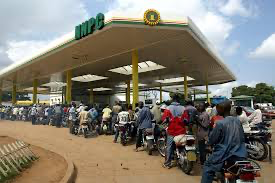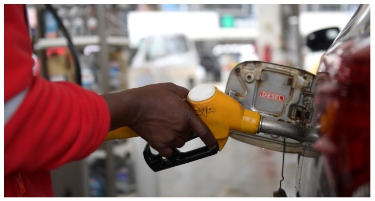A segment of oil marketers has dismissed recent claims circulating in reports that suggest the local refining of crude oil could lower the pump price of petrol to ₦300 per litre. This rebuttal comes from the Major Energy Marketers Association of Nigeria (MEMAN), which responded to the optimistic projections that the price of Premium Motor Spirit (PMS) might drop to around ₦300 per litre with the commencement of extensive production by the Dangote Petroleum Refinery and other indigenous producers, including operators of modular refineries.
The MEMAN representatives emphasized that such a reduction would only be feasible if the government ensures an adequate supply of crude oil to local refiners. They highlighted that international refineries have been exploiting Nigeria by charging exorbitant rates. The Publicity Secretary of the Crude Oil Refinery Owners Association of Nigeria (CORAN), Eche Idoko, expressed that many companies currently profit from the importation of petroleum products at the detriment of Nigerian consumers.
“A lot of companies today benefit from the importation of petroleum products at the expense of Nigerians,” Idoko stated. “If we begin to produce PMS today in large volumes, provided there is adequate crude oil supply, I can assure you that we should be able to buy PMS at ₦300 per litre as the pump price. Why make Nigerians buy it at almost ₦700 per litre when you know that if you allow refineries to work, the price will come down? Is it because you want to satisfy the global refiners abroad that are making so much from us?”
Conversely, Tunji Oyebanji, a former chairman of MEMAN and the current Chief Executive Officer of 11 Plc, countered these claims while addressing reporters on Monday. He asserted that it is unrealistic to expect the price of petrol to drop to ₦300 per litre, given the current market dynamics. He explained that a single barrel of crude oil, which contains 159 litres, costs approximately $80. When converted at an exchange rate of ₦1,400 to the dollar, this amounts to ₦112,000 per barrel. Breaking this down, it equates to about ₦702 per litre of crude oil, even before factoring in refining, transportation, finance costs, and distribution margins.

“One barrel of crude has 159 litres. Currently, a barrel is about $80. Multiply that by ₦1,400, and you get 1400 x 80 = ₦112,000 for a barrel of crude. Divide ₦112,000 by 159, and it gives you ₦702 per litre of crude only. No refining, no transportation, no finance cost, and no distribution margins. Just ordinary crude is ₦702,” Oyebanji detailed.
Oyebanji’s remarks stand in stark contrast to the optimistic outlook of CORAN’s executives, who maintain that the petrol price would significantly drop with local production. They argue that the high cost of crude oil, which is priced in dollars, is a major factor preventing such reductions.
The discussion also highlighted the impact of the Dangote refinery on diesel prices as a comparative example. Oyebanji pointed out that diesel prices, which were previously as high as ₦1,700 to ₦1,800 per litre, dropped to ₦1,200 per litre following the commencement of production at the Dangote refinery. This significant reduction serves as evidence of the potential impact of local refining on fuel prices.
“As I speak to you now, there is every tendency that before December, diesel prices will drop further. The only reason why diesel is not below ₦1,000 per litre is because of our exchange rate. If the exchange rate drops, diesel will fall below the ₦1,000 per litre price. Now the exchange rate concern is because Dangote imports crude. If he is not importing, the exchange rate may not have so much effect, though he is still buying crude




